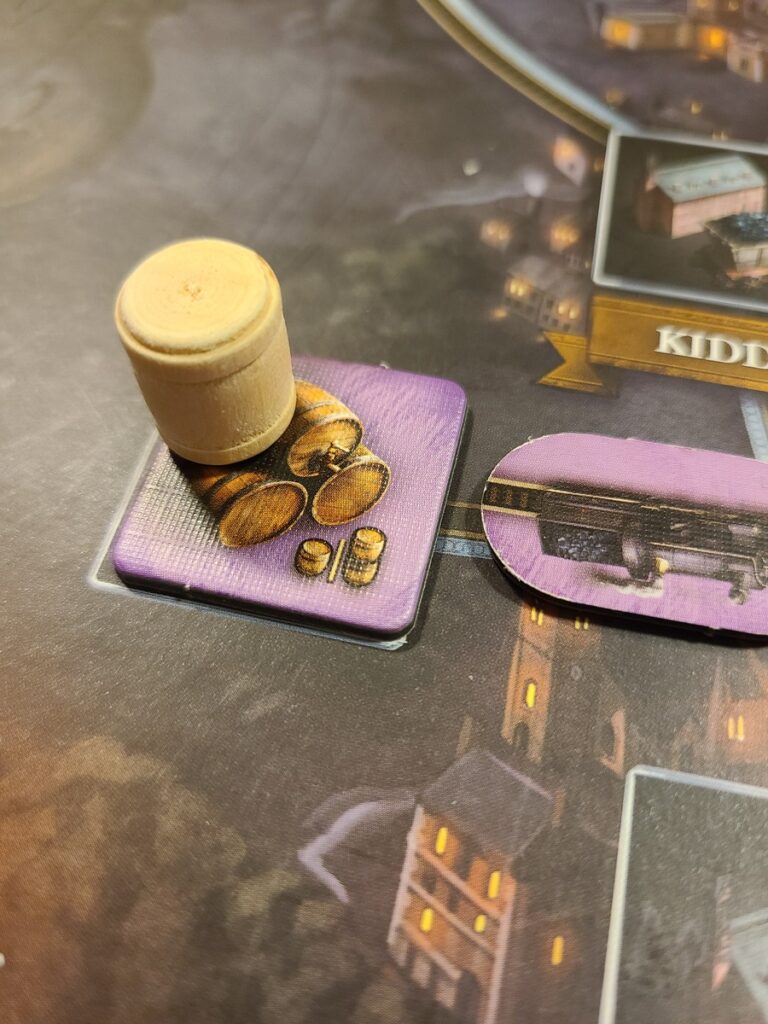This post is part of the Tabletop Writer’s Guild Diversity Initiative Challenge – Week 5: Mechanics, Theme, and Artistry
What is it about a game that makes you play it again and again? Is it great art? Quality pieces? Crushing your friends? Chances are, your favorite game is enhanced by great art, quality components (metal coins anyone?), or the looks on your friend’s faces when you barely eek past them in the scoring. But what really solidifies a coveted spot on your game shelf likely has more to do with the mechanics – the specific rules that make up the “feel” of a game. Game mechanics are the core of any game, and most people tend to gravitate towards specific types of mechanics. While there are a wide variety of mechanics we enjoy, economic games really keep us coming back again and again.
Broadly, in an economic game players manage something that has value – resources, money, or other arbitrary things. Board Game Geek says it best: “Economic games encourage players to develop and manage a system of production, distribution, trade, and/or consumption of goods. The games usually simulate a market in some way. The term is often used interchangeably with resource management games.”
So what, specifically, is it that makes economic games our jam?
Strategy vs Luck
If you’ve seen our other posts you know that we tend to shy away from games with heavy luck elements (easy breezy roll ‘n writes notwithstanding). Both of us like to control the outcomes and feel like our win or loss is on us.
Economic games are loaded with strategy and generally only have a small element of luck. In most economic games, YOU are the master of your fate, and your win is going to depend heavily on your ability to create and execute a strategy better than your opponents.
A mistake can set you back several turns (or even throw the game for you). Forget you needed access to coal in Brass? Now you’ve set yourself back 2-3 turns trying to get the resources to build a coal mine, or you leverage your opponent’s coal mines and give them a benefit that could move their strategy forward.

Long-Term Planning
Economic games force you to have a plan and execute it. Generally, the person who executes their plan in the most efficient way possible wins. There are a couple nuances to economic game long-term planning that can take awhile to figure out, especially in heavy games with a rulebook that reads like War and Peace.
Early sacrifices are often necessary. We talk in our Through the Ages review about Emily consistently kicking butt because Sarah doesn’t like passing over early game scoring opportunities.
Being reactionary can be critical – don’t let your opponent get a monopoly on a valuable resource. In both Brass and Agricola (links to our reviews), keeping an eye on the other player’s resources is key to thwarting their carefully laid plans.
That leads to our final point, that many economic games need you to keep your strategy somewhat flexible and reactive to your opponents. We haven’t reviewed them (yet), but Concordia and Food Chain Magnate both have elements of this, where you might have to modify your strategy based on what your opponents are doing.
Risk Assessment
Get stuff or do stuff? Economic games are all about balance. You have to get stuff to do stuff, but if you spend too long getting stuff you miss out on doing stuff. (That’s the technical explanation.)
Let’s say you’re playing Agricola, which is a super tight game (meaning there is a lot of competition for choosing action spaces), and you’re watching that pile ‘o wood accumulate turn after turn. You’re eyeing down your opponents, trying to guess – can you let it go another round and get more wood, or will someone else decide it’s just too tempting? Can you afford to use one of your very limited actions just in gathering that resource?
Weighing the risk of spending a turn collecting vs. the risk of missing out on an action is part of what makes economic games so challenging.
Get Mo' Stuff

Finally, the very best part of economic games. Getting stuff. There is nothing more satisfying than being several turns deep into a game, taking your turn to do an action and getting a whole bunch of resources and money. Trade in all those “1” coins for the “5s”, you deserve it! Go out and get yourself the refrigerator in Food Chain Magnate and watch your opponents weep while you build up piles of burgers, pizza, and beer.
Our (Current) Favorite Economic Games
Brass: Birmingham
Brass: Lancashire
Food Chain Magnate
Through the Ages
Agricola
Great Zimbabwe
A Feast for Odin
Concordia
